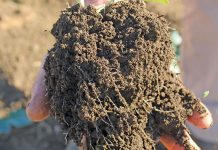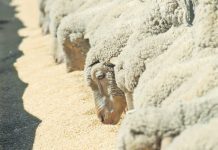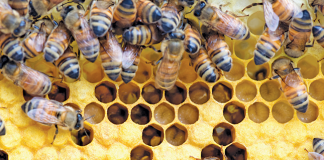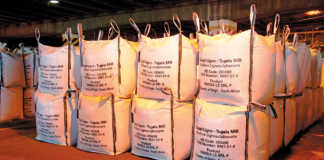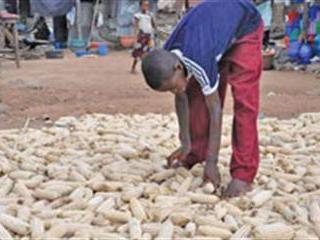
Scientists in California are developing an early warning system for crop diseases that uses bio-sensors stamped onto maize leaves to detect pathogens such as aflatoxins. If there is contamination, the stamp changes colour, enabling the farmer to isolate the plant. The technology is the brainchild of University of California researchers, funded by the Bill and Melinda Gates Foundation.
“The long-term goal is to detect multiple plant pathogens by chemical reactions that turn areas of leaves different colours,” says researcher Hideaki Tsutsui. Fungi such as Aspergillus and Fusarium produce toxins such as aflatoxin, which cause stunted growth, liver cancer and immuno-suppression in humans. Death from aflatoxin infection can occur within 48 hours.
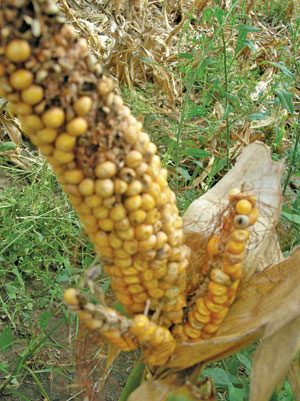
Aflatoxin- infected maize in Eastern Province, Kenya. Courtesy of African Laughter
The UN Food and Agriculture Organisation estimates that aflatoxin and other toxins infect approximately a quarter of the world’s crops every year, wasting a billion tons of food. According to Tsutsui, paper-based colour-metric tests already exist, but can be used only once. The new technology, by contrast, uses a self-inking stamp that delivers toxin- detecting chemicals directly into plant leaf veins through tiny needles, and is good for about 200 tests.
The stamps will initially be made available to sub-Saharan farmers, who often struggle with toxins on their crops. The researchers estimate that the stamps, which should be widely distributed by early next year, will cost about R100 each. Scientists in Kenya have hailed the leaf stamp as a revolution in the fight against aflatoxin, which has had a devastating effect on farm lands and livelihoods in that country.
In 2010, for example, it was widely reported that more than 200 000 90kg-bags of infested maize in eastern and western Kenya had to be destroyed. Other ways of fighting aflatoxin infection, which can be caused by harvesting too early, include moisture meters, but these options are too expensive for small-scale farmers.

